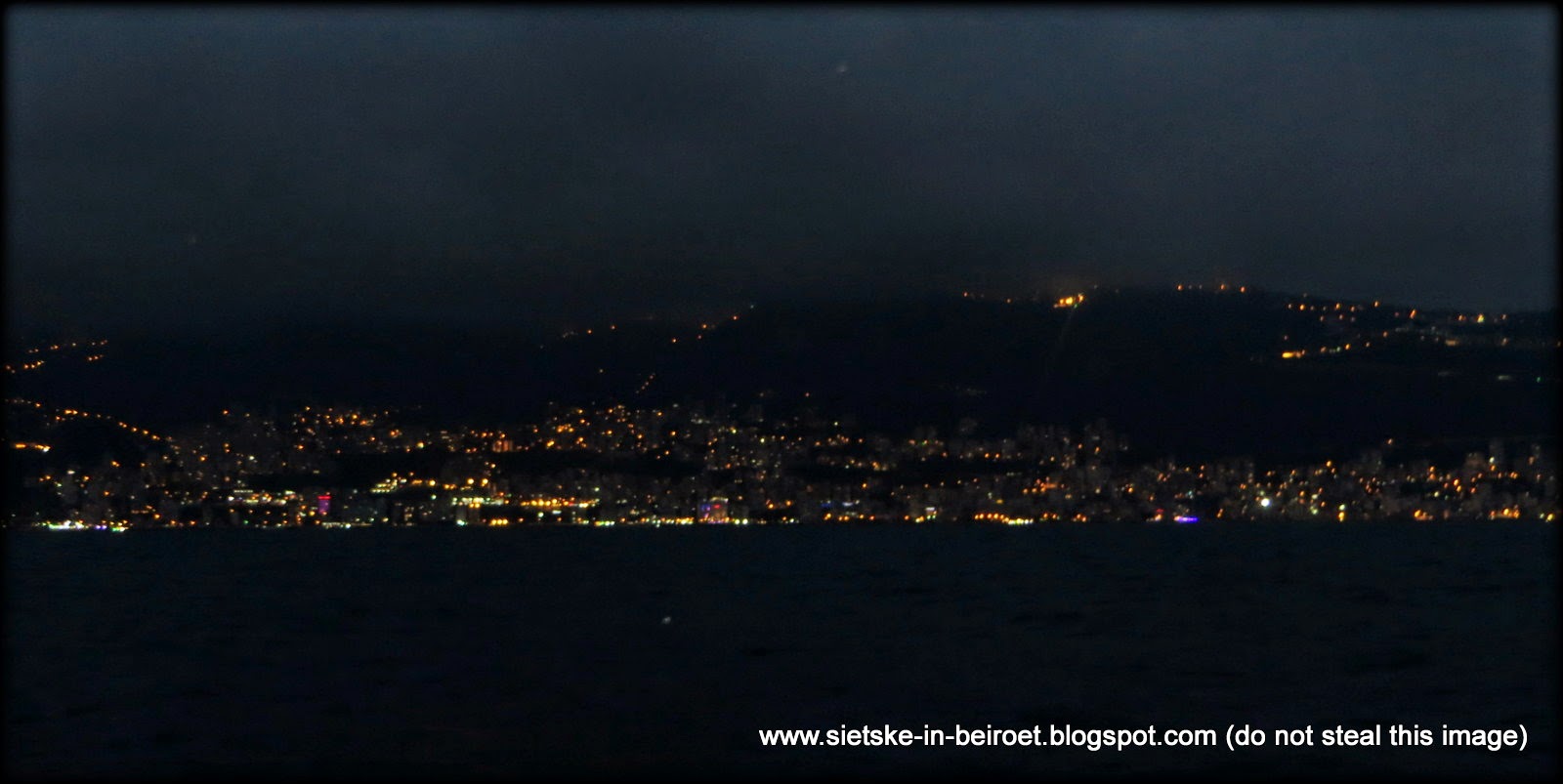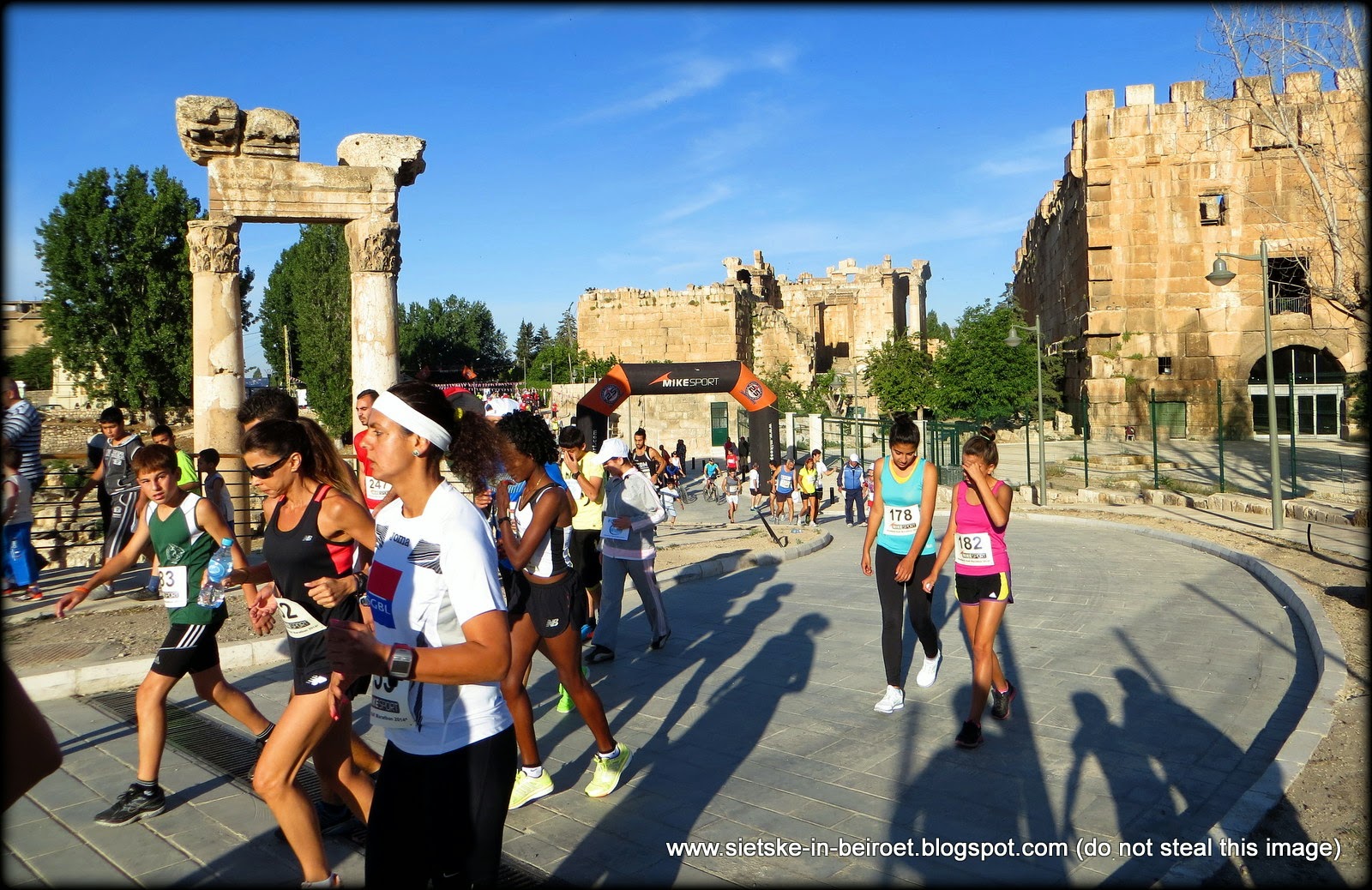 |
| A sail boat on the Mediterranean Sea |
An interesting anthropological experiment took place this Saturday. It took place on a sail boat.
Owning a boat in Lebanon is an expensive business.
And the price of the boat is not the most expensive part of it. Due to a sharp imbalance
between the number of mooring spaces and boats, the price to moor your boat is ridiculously
high. All marinas on the coast around Beirut are full, and have waiting lists. As
such, mooring fees are sky-high. Getting a place can cost you as much as the
price of a small apartment, and then you still have your yearly rental fees,
which can go as high as $2,000 per meter per year in the more posh marinas. Therefore,
many boat owners rent out their yachts in order to help out in the costs.
 |
| "Uh, where can I sit?" |
So last Saturday, the owner of a sailing yacht gracefully
rented his vessel to a few of my Dutch friends and their (mainly) Lebanese spouses.
But the boat was a lot (stress on ‘a lot’) smaller than
we had anticipated, and so we were packed rather tightly. There was also no
wind, and the engine stalled frequently.
 |
| "Where's the wind?" |
But all this didn’t
really matter, because we were among friends, the sun was shining (something
you will always be thankful for when you’re a Dutch), the vessels didn’t sink
and we had fun.
But the experience highlighted an interesting cultural difference
between Dutch and Lebanese.
 |
| Rather cramped |
You see, the Dutch are in general raised in rather modest
financial conditions. Although the European countries have the reputation among
the Lebanese as being ‘rich’ countries, this being ‘rich’ should not be
translated as ‘living a luxurious life’. We tend to be frugal people who do not
spend money frivolously on pleasures that are not tangible. Part of our
Calvinistic heritage, I assume.
As such, being stuck for an entire day on a cramped
sailboat that throttles along the coast at a snail pace, with no real comfortable
place to sit down or lie, is no problem for a Dutch. Heck, we enjoy it.
Lebanon is a country that is infinitely poorer than Holland. Lebanon’s GNP in
2012 was 9,140$
versus $45,960 for Holland (source), and if
you look at the Social
Progress Index , we do even better. Holland features on the 4th
place, whereas Lebanon is somewhere down at the bottom; 83rd (out of
a total 126 countries ).
But for some reason, the Lebanese know how to live well.
Spending over $150 on a day on the beach or a dinner on a weekday is more of a
norm than an exception. You may argue that I am generalizing, but I have seen people
who make half of what I make, spent $275 for a pair of summer sandals! I
have
never in my entire life spent $275 on a pair of shoes, let alone flimsy summer
sandals.
 |
| Almost falling overboard |
Give a Dutch the option of a speed boat ride on a Riva for
$500 or a Seadoo Sportster for $100, and they will inevitable go for the
Sportster. The Lebanese will take the Riva.
As such, the Lebanese contingency was not amused by our
cramped quarters, the lack of soft and fluffy pillows, the uncomfortable
seating arrangements, the excruciatingly slow cruising speed and the fact that
our drinks had to be fished out of the cooler.
 |
| The coast line |
The moment they could get ashore, they arranged for a cab
ride back to Beirut, and left us, the hardy Dutch, on our mere wooden refugee
boat, on the shores of Jbeil. “I like my comfort,” the Lebanese said, “Just because
you paid for it, you are going to suffer all the way back to Beirut, 3 hours long?” And off they were.
And so we had this discussion: Would Dutch men do the
same? Apparently not, because the Dutch
men stayed on board. And so did the Lebanese men who had lived in Holland. What about your husband, I was asked? Would he have
abandoned ship? Well, my hubbie had already decided in advance - when he heard
the number of participants and the length of the ship - not to join. You see,
he is Lebanese, and he likes his comfort.
 |
| And it as getting colder . . . |
The difference in culture was clear. We (the Dutch) had
paid for our boat, and we were going to stay on our boat! Till the bitter end. ‘Till the bitter end’ turned out to be pretty
accurate. At 9:35 PM, in the dark and in the cold, we were still throttling along
the Lebanese coats in search for our port. One of us had invited people for dinner at 9. A bit of a dilemma, as you can imagine.
 |
| . . . and darker (still on that boat) |
But I tell you: I’d do it again.











































